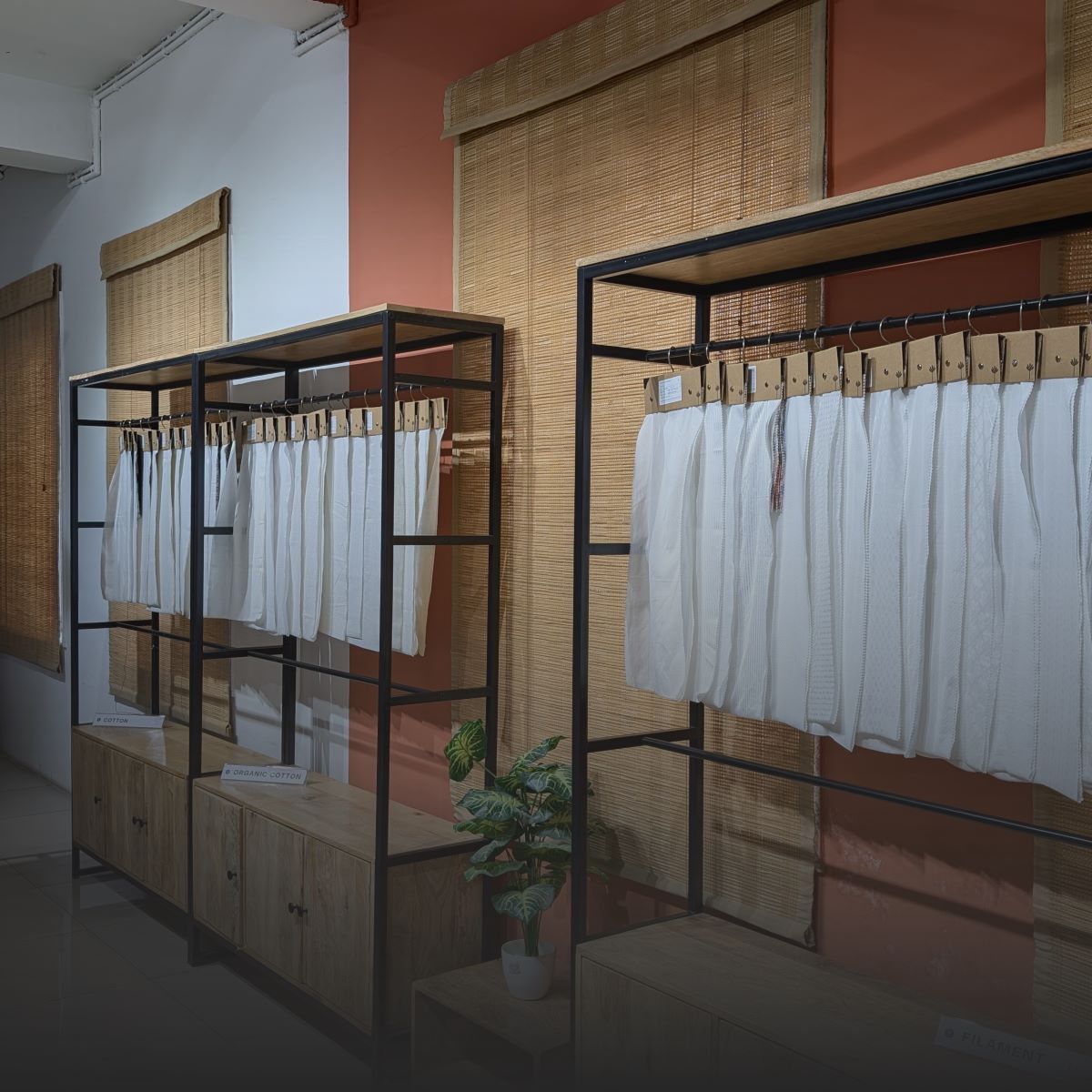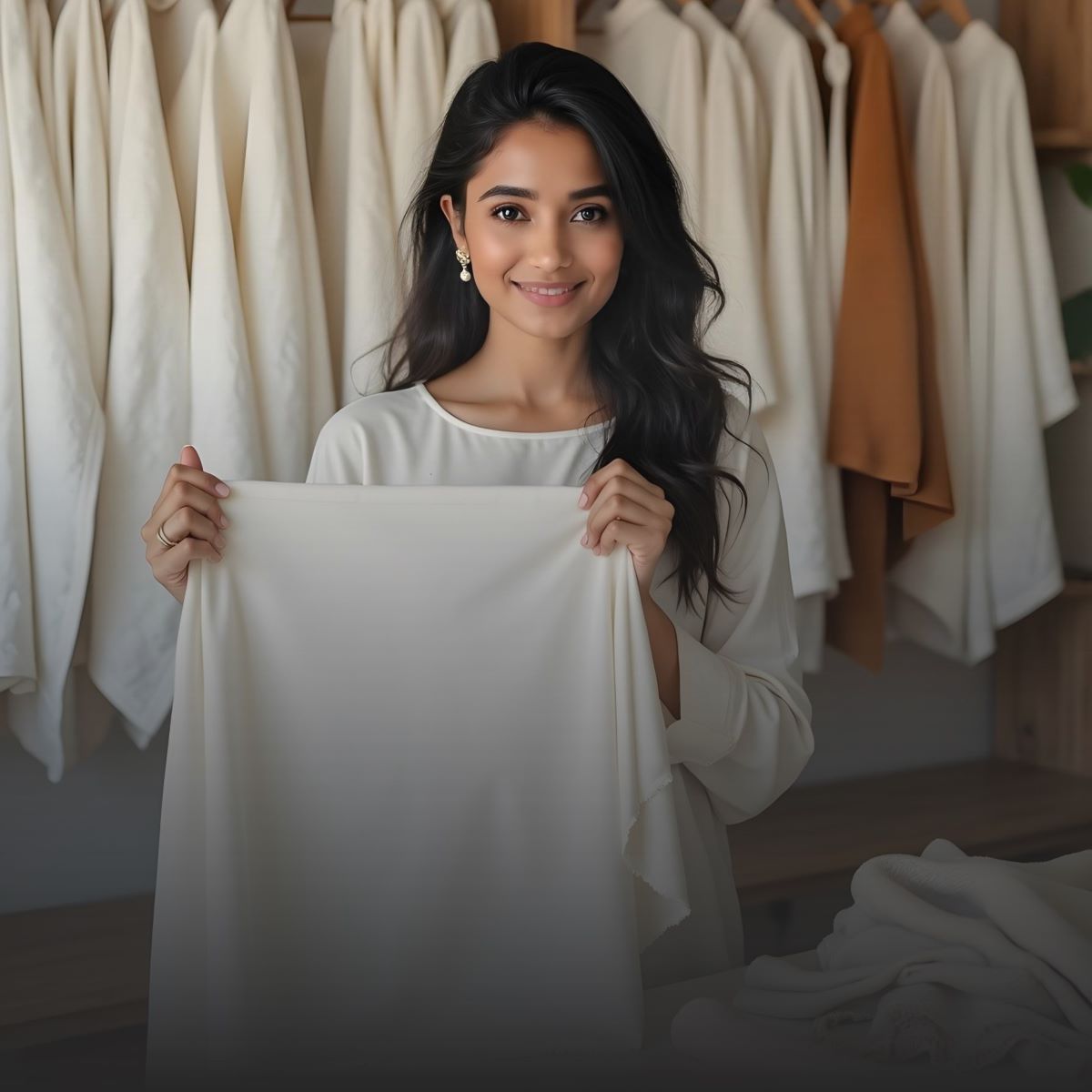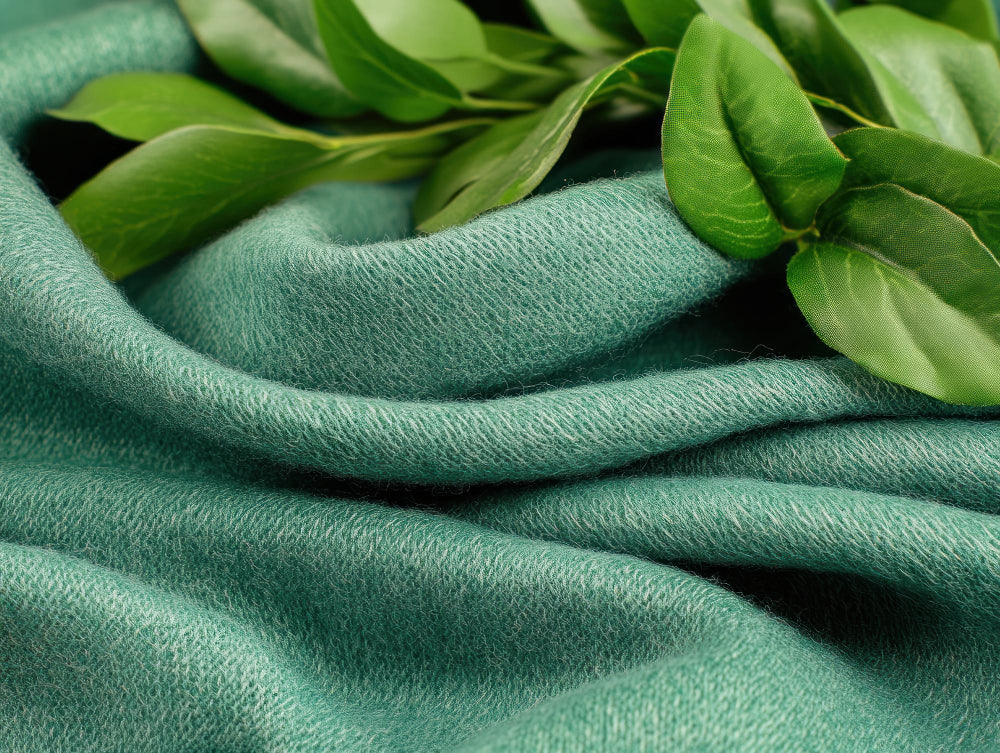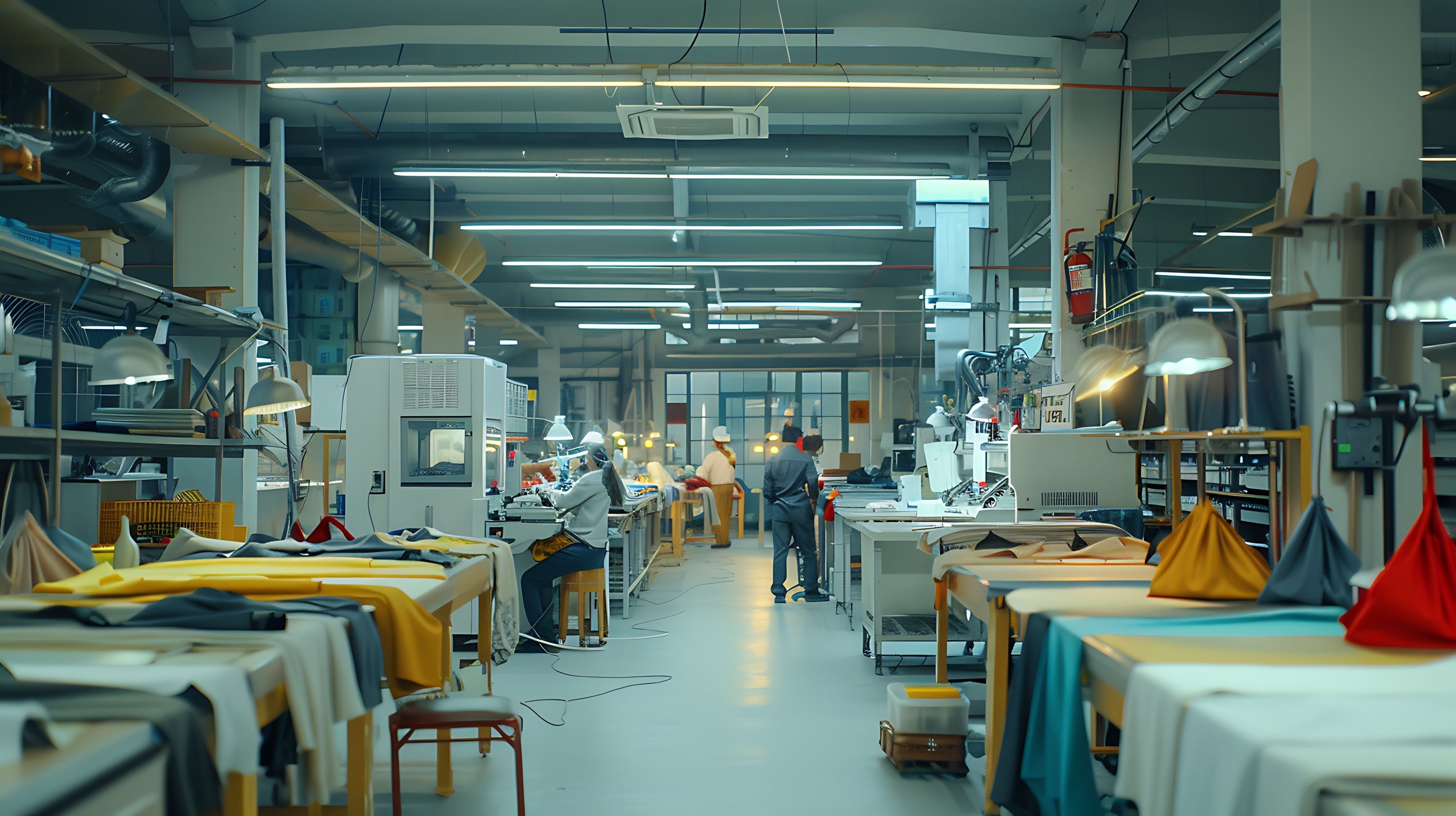Introduction
Eastern Europe is quietly changing the way textiles are made around the world. The area used to be known for making cheap goods, but now it's known for its dedication to sustainable fabric innovation.
To meet the rising demand for eco-conscious fabrics, countries like Poland, Romania, and Bulgaria are combining traditional skills with modern, low-impact production. With the help of strict EU environmental regulations and modern technology, these mills make high-quality textiles that can be tracked back to their ethical sources.
Eastern Europe is an innovative, scalable way for makers and buyers of fabric wholesale to become more environmentally friendly without sacrificing quality, speed, or compliance. This is where the future of cloth is being rewoven.
Also Read: Top 10 Textile Industry Innovations to Watch in Eastern Europe for 2025
Key Drivers Behind Eastern Europe's Rise In Sustainable Textiles

In a market where being environmentally responsible and efficient are closely linked, Eastern Europe has emerged as an excellent choice for brands looking for responsible fabric sourcing. Let's explore what sets this region apart.
1. Eco-Conscious Fabrics & Cutting-Edge Production
When it comes to Eastern Europe, sustainability starts with fibre. Green standards around the world are pushing mills to switch from cheap synthetics and pollutants to bio-based, recycled, and low-impact materials.
- Organic hemp, cotton, and linen (GOTS-certified for people who buy linen in bulk).
- Recycled fibres, like PET blends and cellulose, have been grown again.
- There are certifications like Global Recycled Standard, OEKO-TEX, and GOTS.
To have less of an effect on the world, producers use technologies that save resources:
- Supercritical CO2 dyeing saves up to 90% of water and chemicals.
- Digital inkjet printing cuts down on wasted fabric and printing mistakes.
- Waterless dyeing processes get rid of wastewater.
- Laser cutting makes sure the cuts are precise and cut down on waste.
Because of these changes, brands that use sustainable fabric suppliers in Eastern Europe can cut down on both their production costs and their impact on the environment.
Also Read: What Are Some Options For Wholesale Fabric Suppliers With Sustainable Fabric Varieties
2. EU Regulations Fueling Green Textile Innovation

EU directives that push for sustainability at every level are suitable for Eastern Europe:
- Ecodesign for Sustainable Products Regulation (ESPR) requires that products be designed with the environment in mind.
- The Corporate Sustainability Reporting Directive (CSRD) requires companies to be honest about their environmental impact.
- The EU Strategy for Sustainable and Circular Textiles aims to cut down on waste and promote responsible sourcing.
By making local mills follow strict rules about sustainability and keeping track of them, these rules make sure that they are trusted partners all over the world. This makes them perfect fabric wholesale partners.
3. Prime Location & Modern Logistics

Eastern Europe, which is close to fashion capitals like Germany, Italy, and France, has:
- Shorter lead times.
- Lower shipping emissions.
- Agile, responsive supply chains.
Today's roads, trains, and digital networks help with:
- Bulk fabric and wholesale fabric online orders.
- Real-time tracking and just-in-time delivery.
- Small-batch agility for emerging brands and capsule collections.
This strategic advantage means that sustainable fabrics can be used more quickly, and people can get help right away.
4. Heritage Skills Meet Digital Expertise

The Eastern European textile tradition goes back hundreds of years, but the way it is done is very modern. Mills now do the following thanks to private investment and training from the government:
- Skilled craftsmanship for artisanal weaving.
- Digital automation for precision and scalability.
- Rapid prototyping for sustainable product development.
- Support for small-batch and custom bulk fabric orders
This mix lets brands get high-quality materials without giving up speed or environmental friendliness.
5. Digital Marketplaces & On-Demand Sourcing

The way brands find fabric is changing because of the digital revolution. Now, mills in Eastern Europe can easily connect to B2B platforms that provide:
- Wholesale fabric online catalogues.
- Digital sample ordering and swatch-on-demand.
- Transparent, real-time stock levels and lead-time updates.
This empowers brands to:
- Source wholesale fabric by the yard with ease.
- Minimize MOQ for eco-driven, low-waste production.
- Ensure traceability and compliance through a digital supply chain.
6. Circularity & Responsible Production

Eastern Europe is a leader in textile circularity because:
- Closed-loop recycling of cotton & polyester.
- On-site recycling systems to reduce waste.
- Laser and digital cutting for efficient material usage.
- Lifecycle assessments (LCA) and ESG reporting at the mill level.
These actions bring in brands looking for partners who share global sustainability goals.
7. Standout Innovations in the Region

Bold actions are driving East Europe's environmental movement:
- The New Norm (Poland): 3D-printed clothes from materials that can be recycled, which could lead to zero waste.
- Inovafil (Bulgaria): Renewable energy powers factories that make organic yarn.
- Czech Textile Innovation Cluster: Biodegradable bright clothes with sensors that track health.
These early adopters are changing what fabric suppliers do by making it smarter, more environmentally friendly, and better suited to the digital age.
Fabriclore: Bridging Continents With Conscious Textiles

As a link between Eastern European and Indian sustainable textiles, Fabriclore, India's innovative fabric platform, is vital.
Fabriclore Strengths Include:
- Global sourcing of certified sustainable fabrics and custom prints.
- Low MOQ support (starting 10 meters) with on-demand digital swatches.
- Quality checks, fabric testing, and compliance services aligned with EU standards.
- Delivery of wholesale linen, organic cotton, and blends directly to global brands.
Along with its vast catalogue of Indian eco-textiles, Fabriclore gives designers and wholesalers access to new ideas from Eastern Europe.
Also Read: Where Can I Find Wholesale Fabric Suppliers for Sustainable Materials
Why This Matters For Your Brand
By sourcing from Eastern Europe, brands benefit from:
- Sustainable, certified materials at scale.
- Cutting-edge eco-tech to reduce waste and emissions.
- Compliance-ready processes embedded into fabric production.
- Agile supply chains that support 'bulk fabric, custom yardage, or low-MOQ model crops.
- Transparent sourcing and efficient delivery to global markets.
It offers the rare trifecta: sustainability, quality, and strategic advantage.
Also Read: Best Wholesale Fabric Suppliers Offering a Wide Range of Sustainable Options
Final Thoughts

What started as a trend is now becoming a hub for sustainable fabrics in Eastern Europe. This is a big change in how textiles are sourced. The region provides an appealing combination of eco-certified materials, advanced digital production, a strategic location, design flexibility, and regulatory compliance. Fabriclore enhances these strengths by linking global brands with the finest eco-fabrics sourced from places like Eastern Europe and India.
If fashion companies, new businesses, and fabric wholesalers want to move up in the Google rankings and follow green guidelines, they might want to look into Eastern Europe. Using platforms for finding fabrics like Fabriclore can be a good way to make sure you have a successful future in fashion.
Also Read: Where to Find Sustainable Fabric Suppliers with Low Minimum Order Quantities
FAQ’s
Q1. What Is The Biggest Advantage Of Sourcing Sustainable Fabric From Eastern Europe?
A: The main benefit of getting sustainable fabrics from Eastern Europe is that the area can offer certified eco-friendly textiles, cutting-edge green technologies, and strict EU compliance, all within a quick and flexible supply chain. Eastern European fabric suppliers offer brands all over the world high-quality, eco-friendly options made from materials like GOTS-certified cotton, recycled PET, wholesale linen, and organic hemp. They are also close to fashion hubs like Germany, France, and Italy, which means lower transportation emissions, faster delivery times, and easier logistics for getting bulk fabric.
Q2. Can I Buy Wholesale Fabric Online Directly From Eastern European Suppliers?
A: Yes, without a doubt. Many Eastern European fabric manufacturers and suppliers now let you buy wholesale fabric online through reputable B2B sites. People who work in fashion and sourcing can use these platforms to look at verified wholesale fabric by the yard, order certified swatches, see real-time stock updates, and place direct low-MOQ or bulk fabric orders. Eastern Europe supports quick, easy, and precise digital sourcing, no matter if you're a startup looking for sustainable textiles in small batches or a bigger brand that needs to increase production.
Q3. What Types Of Sustainable Fabrics Are Available From Eastern Europe?
A: Eastern Europe is becoming a world leader in making environmentally responsible textiles. It provides many sustainable fabric options to customers around the world. Some of these are:
- Organic cotton (GOTS and OEKO-TEX certified).
- Wholesale linen and hemp (ideal for breathable, durable fashion).
- Recycled polyester (rPET) and low-impact blends.
- Agricultural waste-based fibres.
- Smart textiles embedded with sustainable tech for circular fashion.
Because the area is so varied, it is a popular spot for brands looking for eco-certified fabric wholesale solutions that can be fully tracked.
Q4. What Are The Typical Minimum Order Quantities (MOQs) For Wholesale Fabric In Eastern Europe?
A: Most Eastern European fabric suppliers offer low to medium, minimum order quantities so they can work with both small and large buyers. Many manufacturers now provide MOQ flexibility, letting you place orders as low as 10 to 50 meters for custom developments, swatches, and sample runs. This is especially true when you buy from Fabriclore or another online platform. This is great for fashion startups, independent designers, and sustainable fashion brands that want to try out new ideas before making a lot of them.
Q5. How Do Fabric Suppliers In Eastern Europe Ensure Sustainability Compliance And Transparency?
A: EU legislation and textile innovation mandates do a lot to support sustainability in Eastern Europe. Most of the wholesale fabric suppliers in the area follow rules like
- ESPR (Ecodesign for Sustainable Products Regulation).
- CSRD (Corporate Sustainability Reporting Directive).
- EU Strategy for Sustainable and Circular Textiles.
Also, suppliers often have third-party certifications like GOTS, OEKO-TEX, and Global Recycled Standard (GRS). These make sure that materials are responsibly sourced, processed without using harmful chemicals, and can be tracked from the fibre to the finished roll. This means that international fashion brands with ESG goals can trust them as sustainable fabric suppliers.
Q6. Why should I choose Fabriclore for sourcing sustainable fabrics from Eastern Europe and beyond?
A: Fabriclore is a reliable global platform for fabric wholesale. It offers a carefully chosen range of sustainable fabrics from Eastern Europe and India. Fabriclore makes it easy for mills and fashion brands to work together. They can order custom-printed organic cotton, GOTS-certified linen, or low-minimum-order quantities of full fabrics. The services are:
- Custom digital, screen, and hand-block printing.
- Low MOQs starting from just 10 meters.
- Access to ready-to-ship, made-to-order, and dyeable fabrics.
- End-to-end fabric testing and quality checks.
- Seamless global shipping and B2B order support.
Fabriclore helps brands source ethically, scale responsibly, and keep competitive pricing in a conscious market by working with sustainable fabric suppliers across Eastern Europe and adding them to its platform.
Click Here! to connect with the leading Wholesale Fabric Supplier in Europe and unlock high-quality textiles at unbeatable prices!
We also happen to be a magnet for suggestions, and would love to catch yours….throw us yours on hello@fabriclore.com




